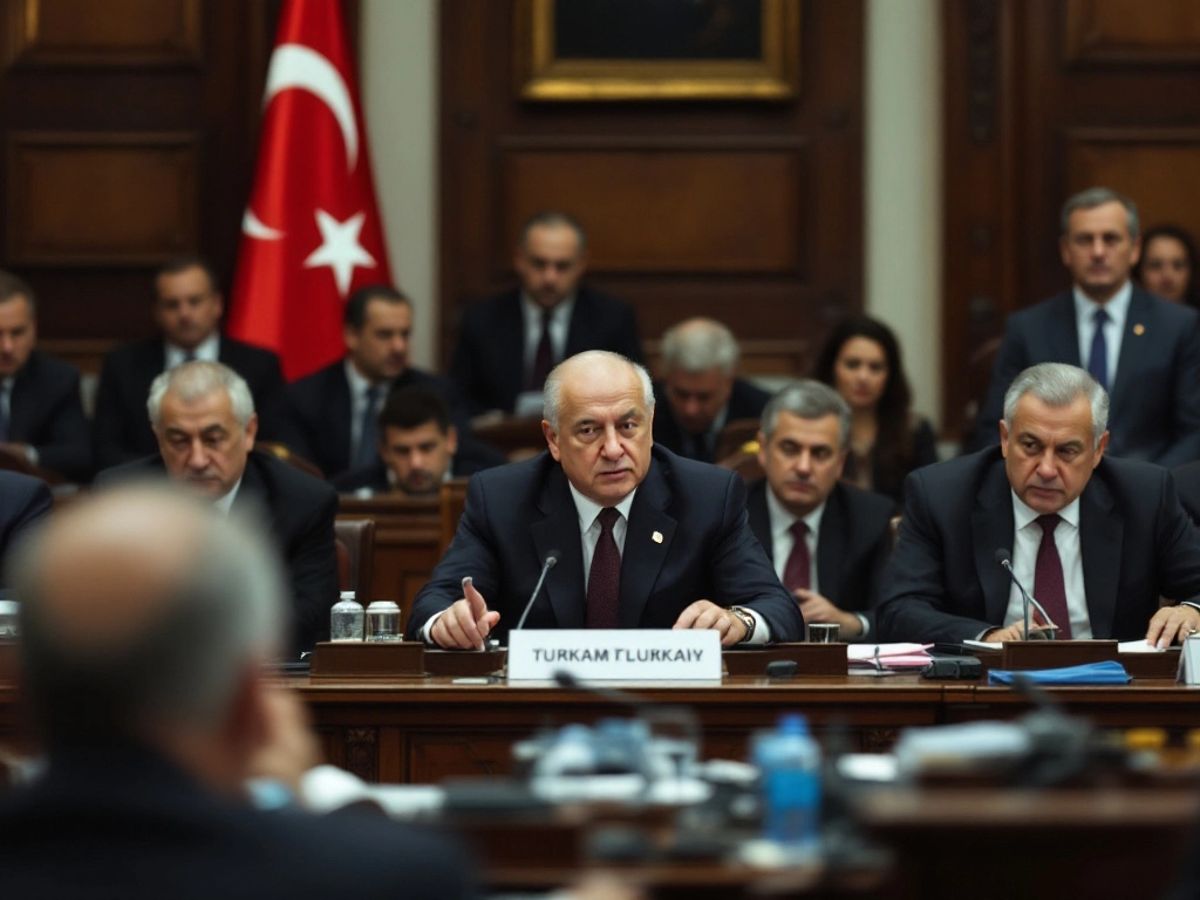Turkish lawmakers convened in a closed-door session to discuss escalating tensions in the Middle East, particularly in light of President Tayyip Erdogan’s recent assertions regarding Israel’s intentions toward Turkey. This meeting comes amid ongoing conflicts in Gaza and Lebanon, raising concerns about regional stability.
Key Takeaways
- Turkish parliament held a closed session to discuss Mideast conflicts.
- Erdogan claimed Israel aims to encroach on Turkish territory.
- Israel has not publicly responded to Erdogan’s allegations.
- Opposition lawmakers criticize Erdogan’s claims as unfounded.
- The session was requested by opposition parties to address regional risks.
Erdogan’s Claims Spark Controversy
In a recent address to parliament, President Erdogan made bold claims suggesting that Israel’s ambitions extend beyond its current conflicts, stating, "After Lebanon, the next place on which Israel will set its eyes will be our homeland." This assertion has been met with skepticism from analysts and opposition lawmakers, who argue that it serves to distract from Turkey’s domestic economic challenges.
Erdogan’s comments were made during a session attended by foreign ambassadors and cabinet members, emphasizing the seriousness with which the Turkish government views the situation. However, the lack of evidence to support his claims has led to widespread criticism.
Parliamentary Session Details
The closed-door session, titled "Israel’s Occupation of Lebanon and Developments in the Region," was initiated at the request of opposition parties. Parliament Speaker Numan Kurtulmus announced that both the foreign and defense ministers would present their assessments of the risks posed by the ongoing conflicts in Gaza and Lebanon.
This session highlights Turkey’s position as a vocal critic of Israel’s military actions, particularly against groups like Hamas and Hezbollah. Turkey has taken significant steps, including halting trade with Israel and pursuing legal action against it at the World Court.
Reactions from Political Leaders
Devlet Bahceli, leader of the Nationalist Movement Party (MHP) and Erdogan’s main ally, expressed concerns that chaos in neighboring countries could spill over into Turkey, suggesting that Israel may pose a threat to Turkish sovereignty. In contrast, Ozgur Ozel, leader of the main opposition Republican People’s Party (CHP), dismissed these fears, stating, "It’s unreasonable to think Netanyahu will conduct an assault on Turkey, which is a NATO member and has a great army."
Public Sentiment and Protests
Polls indicate that a significant portion of the Turkish population supports the government’s hardline stance against Israel. Recent protests have emerged, coinciding with the anniversary of the Hamas attack on Israel, with demonstrators urging Erdogan to take more decisive action against Israel.
Despite the government’s trade ban with Israel, there are questions regarding the effectiveness of this measure, as official data suggests a substantial increase in exports to Palestinian territories this year.
Conclusion
As tensions in the Middle East continue to escalate, Turkey’s parliamentary discussions reflect the complexities of regional politics and the challenges facing Erdogan’s government. The closed session underscores the delicate balance Turkey must maintain as it navigates its relationships with both Israel and its own citizens amid growing unrest.






